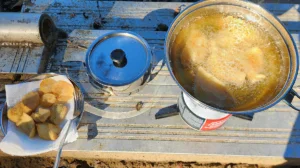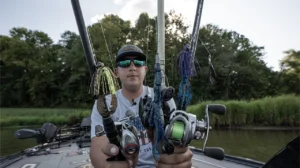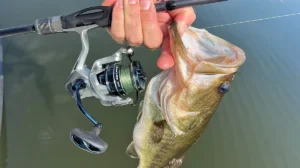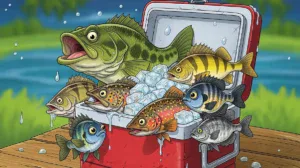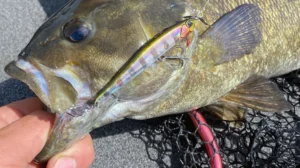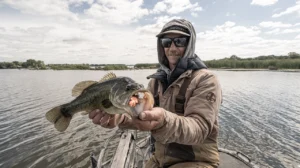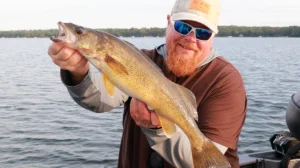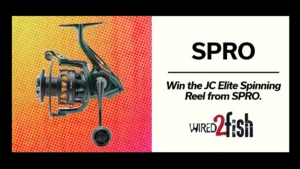Most times, the last things that get any TLC are our boat trailers. They are the unsung heroes for boat owners but without them, getting from one lake to another would be nearly impossible. For the most part, they don’t need much maintenance but when something does go wrong they can be a real booger to get fixed.
They get jiggled, wet then dry, find every pothole and routine care is often an afterthought. Wiring gets pinched, pulled, unplugged and plugged and sits in rust and water most of its life. There’s no better better time to give it a once-over than the winter months.
General maintenance should be ongoing, but at least once a year there are a few things worth doing. Whether you have a used boat or a brand new boat, this will take headaches out of the equation.
Upon purchase, inspect the trailer.
Most are designed exclusively for the boat, but manufacturers often look at them as an afterthought. “Good enough” is the mantra, so little things like lights and wiring should be inspected when purchased. I personally always want LED trailer lights. They can be dipped in the water without fear of burning out a bulb, they use less power and most times are much brighter. Request LEDs when possible. I just found out that T-H Marine carries a large selection of LEDs for the trailer and inside of your boat, too.
Check the trailer plugin for wear and nicks.
I use wire wrap on the wiring between the trailer and the tow vehicle in order to protect the wiring. It’s inexpensive and can assure that wear and tear is reduced. Depending on if your trailer has brakes, the plug can either be a 4 or 5-plug end. Even on a new boat, I give the plug a small dab of dielectric grease on each connector.
If you do not have dielectric grease, a small amount of marine grease on a cotton swab works equally well. Silicone spray the entire plug and receptacle, too. Don’t forget the plug-in on the tow vehicle. Round adapter plugs need a shot of silicone or light oil a few times per year.
Make sure to check the truck receiver and ball periodically.
A shot of light oil on both the male and female side of the receiver will keep it from rusting and can take some of the noise out of the hitch too. I lightly coat the male end of the receiver with marine grease a couple times a year and will sand and give it a fresh coat of paint each winter. Make sure the ball is oiled as it provides ground for the trailer. I will spray paint the inside of the female end too, while doing the same thing with the hitch on the trailer. Lubrication means less corrosion and rust.
Lubricate the trailer wheel at this time, too. Marine grease and a good shot of silicone spray on the wheel assembly and the wheel itself makes it easier to maneuver in the garage and parking lot. Routinely check the winch assembly and the winch strap for wear at this time as well. Tighten anything loose and a little light oil can go a long way.
Spray the trailer bunks.
I spray the bunks of the trailer a few times a year with a top-notch detail spray. Silicone spray works well here as well. It allows the boat to slide on and off easier and will keep mildew and varmints like grass and mussels from attaching to it. It will also keep the carpet fresh longer allowing it to last. Check the bolts on both the bottom and side bunks now and again and do not overtighten when wet. That will cause them to wallow out from vibration.
Use support systems.
Always use a motor-totor/outboard support sticks on your outboard and rod buckles on your boat. This takes the vibration out of the two components and gives it a single feel pulled down the road. Silicone the retractable rod buckles too. The totor takes pressure off the transom from the weight of the engine and keeps you from scarringing the skeg.
Cross members should be coated.
Bed liner or flex-type coatings are a great fit and can be color matched. After they are sprayed with color, a can of quick-drying clear enamel will lock in the color and add to the protection. Make sure the flex coating is dry before applying.
Make sure bearings are in good, working order.
It’s important to have your bearings packed or greased at least once per year and it’s good to check them throughout the fishing season. Check tires for wear and pressure and check your spare for tire pressure at the same time. Low pressure can cause the tires to wear faster.
Costs to maintain a trailer is minimal, but consistent maintenance can eliminate a bad experience while traveling to your favorite fishing spot. I always carry a can of Fix-a-Flat, wheel wrench and tools in my Leer Locker, just in case an issue arises while trailering. It’s always better to be prepared than stranded along the road.




![[VIDEO] How to Install the Garmin Force Pro Trolling Motor](https://www.wired2fish.com/wp-content/uploads/2025/06/trolling-motor-install-300x169.webp)

